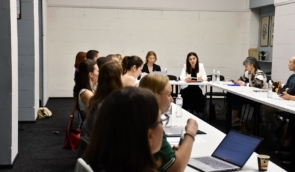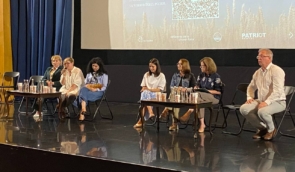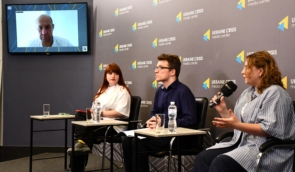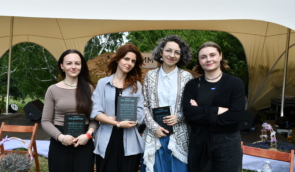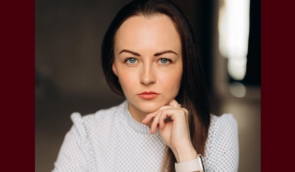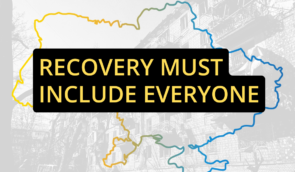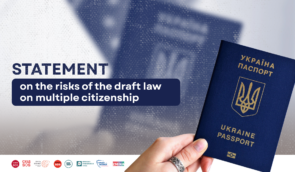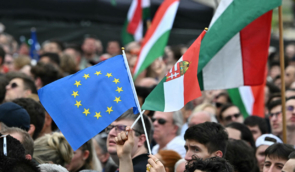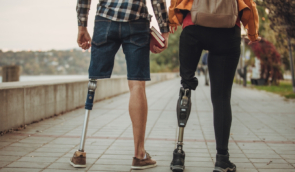ZMINA raised an issue of Russia’s abuses against civilians in the occupied territories of Ukraine during the UN Human Rights Council
On March 12, a side event “Russia’s Abuses Against Civilians in the Occupied Territories of Ukraine” took place during the 55th session of the UN Human Rights Council in Geneva. ZMINA’s Head of War Crimes Documentation Yelyzaveta Sokurenko together with representatives of Media Initiative for Human Rights, World Organisation Against Torture and Physicians for Human Rights discussed grave human rights abuses Russians commit in the temporarily occupied territories of Ukraine and the coercive methods of the Russian authorities designed to suppress dissent.
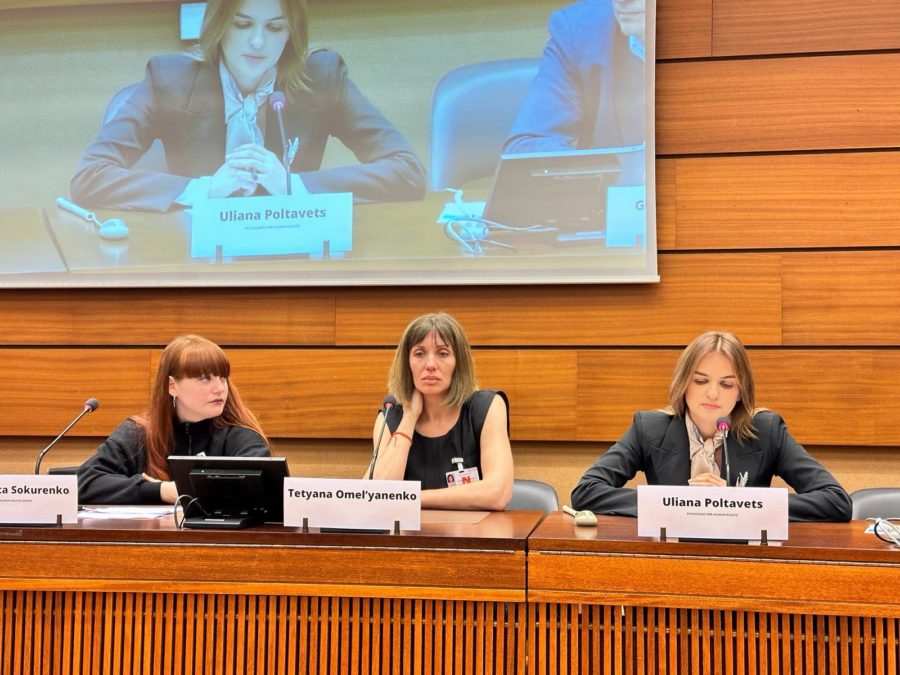 Photo: Yelyzaveta Sokurenko, Tetyana Omel’yanenko and Uliana Poltavets
Photo: Yelyzaveta Sokurenko, Tetyana Omel’yanenko and Uliana PoltavetsYelyzaveta Sokurenko shared documented cases of international crimes committed by the Russian military in the occupied territories of Ukraine which were obtained mostly by conducting in-depth interviews with victims and witnesses during field missions to the liberated territories. “These are cases of arbitrary detention, torture and ill-treatment, enforced disappearances and deportations of civilians. These are testimonies of people from 17 to over 60 years old who were snatched from their ordinary lives and placed in so-called torture chambers – without access to water, food, medical care, or communication with the outside world. Most of them were severely beaten, tortured, suffered psychological violence,” told Sokurenko.
She highlighted that the Russian occupation administration tries to consolidate power by spreading fear among the population and uses grave human rights violations as a tool of pressure on the local community and destruction of social ties. In all occupied settlements of Ukraine, the Russian administration continues to apply so-called “filtering” procedures, conduct monthly house-to-house raids, and search for those civilians who may “pose a threat” or are perceived as “disloyal to Russia”.
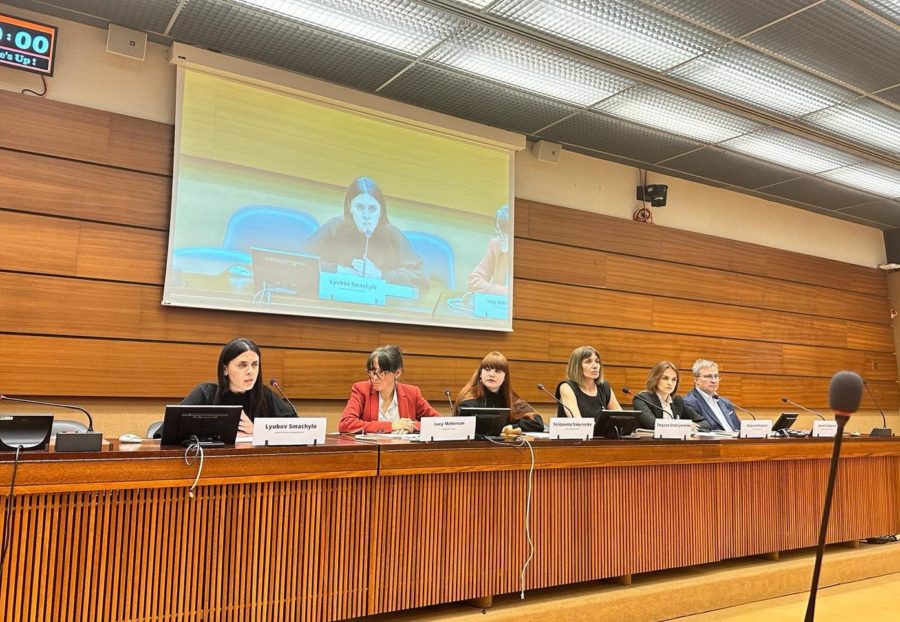
Tetyana Omel’yanenko, the mother of a civilian hostage from Berdyansk Damian Omel’yanenko, said that her son has been in Russian captivity for the second year. He studied at the Air Force University and his documents fell into the hands of the occupiers. For the first time, he had been detained for a month in May 2022 during which he underwent torture with electric current and truncheons, he had broken ribs and legs and lost 10 kilograms of weight.
On November 16, 2022, Damian went to take out the garbage and the connection with him was lost again. He was abducted by armed men in military uniform and taken to an unknown destination. During the first year of detention of her son, Tetyana Omel’yanenko received a few phone calls and was threatened with the murder of Damian if she did not record a confession of cooperation with the Ukrainian military. Only in August 2023, the Russian media published information that Tetyana’s son and other young men would be tried in the Southern District Military Court of Rostov. Currently, Damian Omel’yanenko is held in the Rostov Pre-trial Detention Center.
Lyubov Smachylo from Media Initiative for Human Rights underlined that the organization identified 1550 civilians who were unlawfully arrested and are held in places of detention both in the temporarily occupied territories of Ukraine and the territory of the Russian Federation. She also specified a few traced patterns: “While analyzing collected testimonies, we see that the Russian military interprets the neutral behaviors of locals as a sign of suspicion, carries out arrests and interrogations with the use of torture, and holds detainees near its positions.”
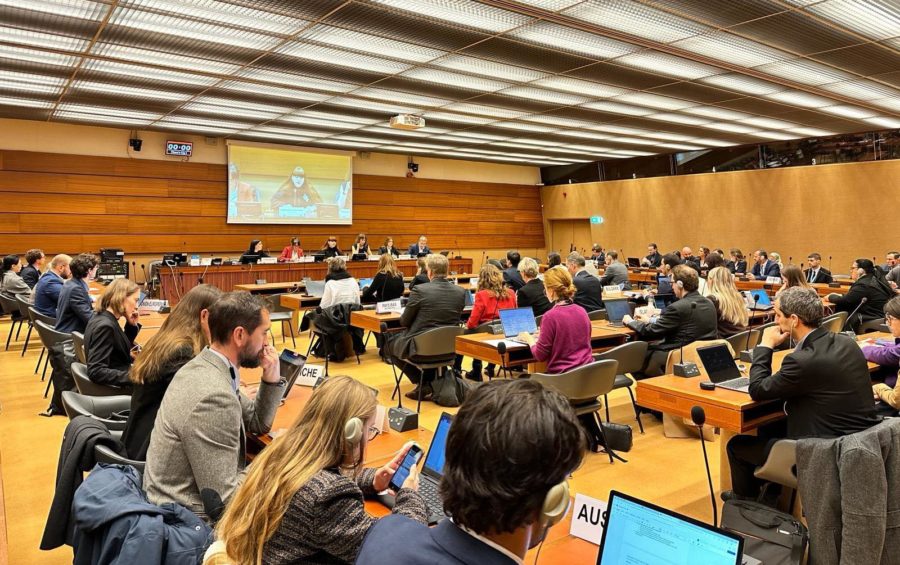
The representative of Physicians for Human Rights Uliana Poltavets presented three primary methods that Russian forces have reportedly employed to hamper healthcare access and thereby expand and cement Russia’s coercion of and control over Ukraine’s civilian population. These include reports of the misuse of health facilities for nonmedical purposes; forced “passportization” when civilian access to health care is conditioned on changing one’s nationality from Ukrainian to Russian; threatening and harassing health care personnel.
“Health care workers are attacked, detained, arrested and otherwise persecuted, especially when they are perceived as somewhat leaders in their communities. We do not know the exact number of healthcare workers that are currently in Russian captivity, but our monitoring showed at least about 70 and other estimates show hundreds. The testimonies of health care workers we have collected who return from captivity report poor living conditions, torture, and ill-treatment,” told Poltavets.
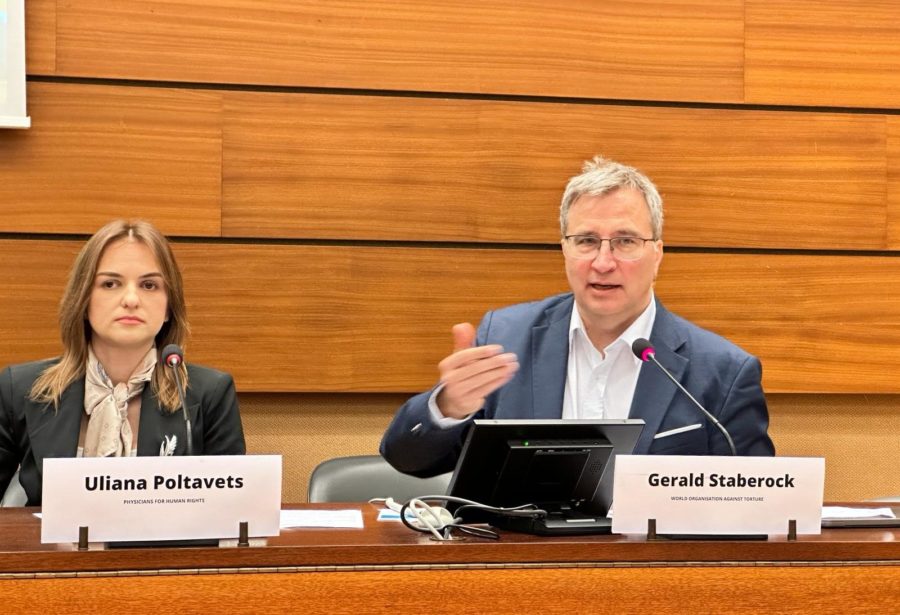 Photo: Uliana Poltavets and Gerald Staberock
Photo: Uliana Poltavets and Gerald StaberockThe Secretary General of World Organisation Against Torture Gerald Staberock mentioned that the documented cases demonstrate that the civilian population of Ukraine was the primary target of the attack and the involvement of high-level military authorities and the employment of significant financial and military resources further corroborate the systematic nature of the attack. “The fact that the Federal Security Service, Federal Penitentiary Service, Ministry of Defence, Ministry of Internal Affairs, Federal National Guard Service and other Russian-controlled units acted in a coordinated and similar manner presupposes that those units were responding to a single command that was superior to the commander of each of those units,” added Staberock.
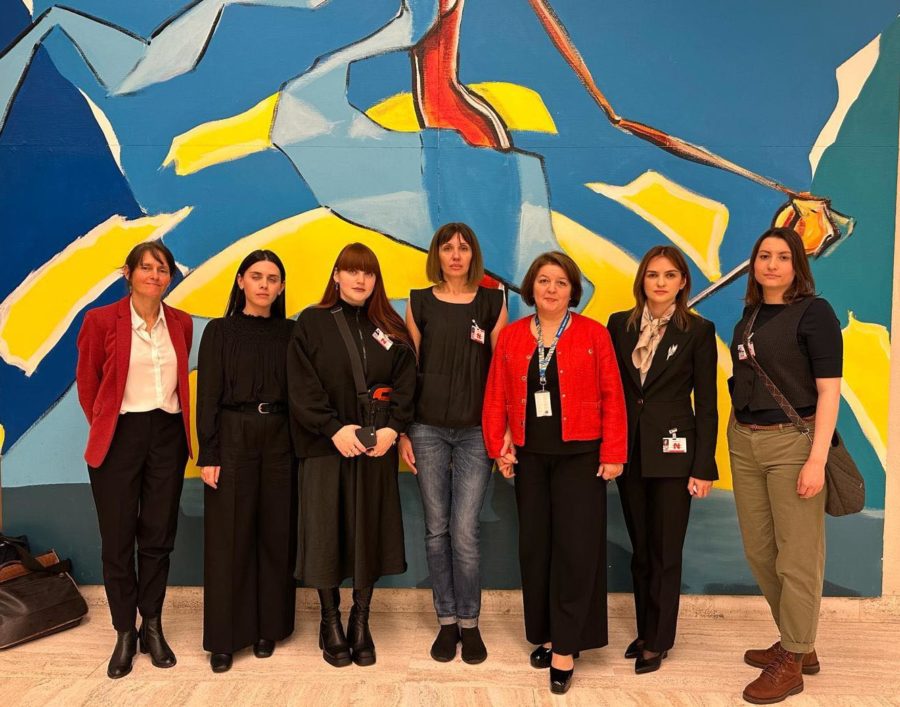 Representatives of civil society with Permanent Representative of Ukraine to the International Organizations in Geneva Yevheniia Filipenko
Representatives of civil society with Permanent Representative of Ukraine to the International Organizations in Geneva Yevheniia FilipenkoExperts stressed the importance of the involvement of independent monitoring missions in the collection of evidence and investigation; the establishment of a hybrid tribunal to hold accountable perpetrators involved in international crimes against Ukrainian civilians; the activation of extraterritorial and universal jurisdiction at the domestic level or inter-State complaints under the relevant treaties; as well as further implementation of sanctions. They also called for the launch of the mechanism of identification and liberation of abducted and illegally detained civilians.
Around 75 representatives of various countries and civil society of different world regions joined a side event. It was co-sponsored by Human Rights Watch, Human Rights House Foundation, World Organisation Against Torture (OMCT), Physicians for Human Rights, Ukraine 5 AM Coalition, Human Rights Centre ZMINA and Media Initiative for Human Rights.
Photo credit: World Organisation Against Torture (OMCT)
If you have found a spelling error, please, notify us by selecting that text and pressing Ctrl+Enter.

